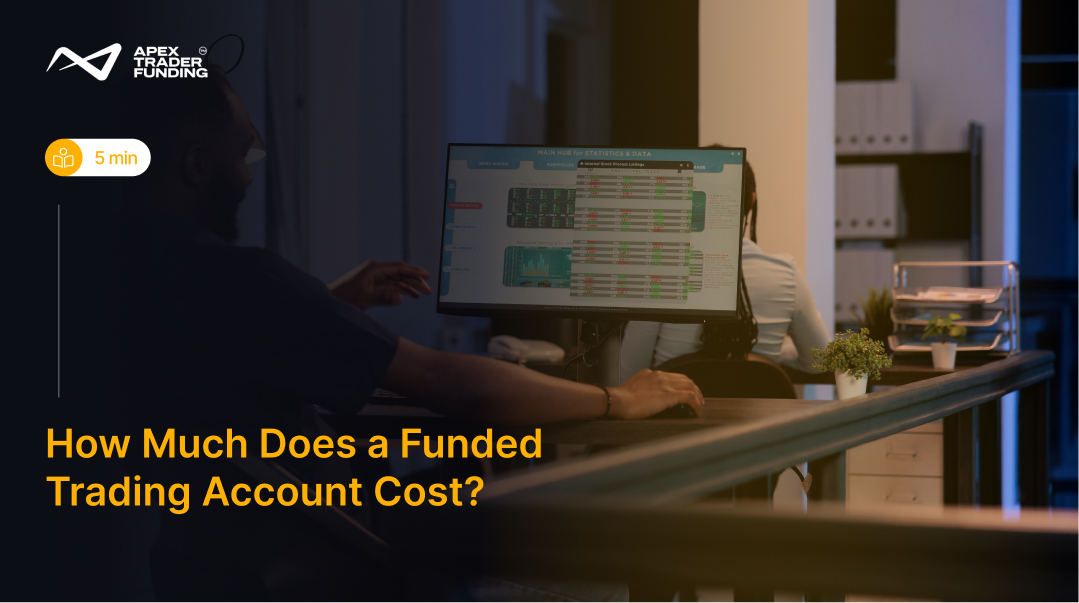
trading-education | 30-08-25
"In 2026, an Apex Trader Funding evaluation costs between $147 and $677 per month at standard rates, though frequent sales often reduce these prices by 80% to 90% (e.g., $18.70 for a 50K account). Beyond the entry fee, traders must pay a PA Activation Fee (approx. $85–$160) or a monthly fee once funded. There are no separate data fees for CME Top of Book data during the evaluation."
The cost of a funded trading account usually comes in the form of an evaluation fee, which can range from modest monthly payments to higher one-time charges depending on account size and provider. These fees aren’t repayments for losses but the price of entry—covering access to rules, platforms, and the chance to prove your trading discipline. Understanding this structure helps traders see that cost isn’t just an expense, but part of the educational process.
The 2026 Discount Strategy: Never Pay Retail
While the standard monthly rates for Apex evaluations range from $147 to nearly $300, experienced traders rarely pay these prices. By using a "Life-of-Account" coupon code (like "FUTURE" or "SAVE90"), you can often secure an 80% to 90% discount. This brings the cost of a 50K account down from $167 to approximately $18.70. Before signing up, always check for active promotion codes to ensure you aren't overpaying.
Evaluation Fees: The Entry Ticket
Most funded trading accounts require traders to pass an evaluation before accessing live capital. These evaluations aren’t free. Costs can range from as low as $50 to several hundred dollars, depending on account size, rules, and the platform provider.
- Smaller accounts (e.g., $10K–$25K) often carry lower monthly fees.
- Larger accounts (e.g., $100K+) typically demand higher entry fees because they provide greater buying power.
- Some programs bill monthly until the evaluation is passed, while others charge a one-time fee.
This cost isn’t a penalty—it’s a filter to ensure that traders are committed enough to take the process seriously.
Paying for access is easy—proving discipline is what earns you the account.
Why Costs Vary Between Firms
Funded trading accounts don’t come with a one-size-fits-all price tag. It depends on the firm’s structure, including tools, and rules. For example:
- Some firms include platform access, data feeds, or coaching resources within the fee.
- Others keep fees minimal but charge separately for add-ons like advanced analytics.
- Firms that offer very high payout ratios or flexible rules may balance that generosity with slightly higher evaluation fees.
In short, costs reflect not only the account size but also the value of resources offered alongside it.
The Platform Price Gap: Rithmic vs. Tradovate
You will notice a consistent price difference between the two primary platforms. Tradovate typically costs $20 more per month than Rithmic. This "convenience tax" covers Tradovate’s cross-platform compatibility, allowing you to trade on a Mac, iPad, or mobile device via the web. Rithmic is lower cost but generally requires a Windows environment and the RTrader Pro software to manage your connection.
Beyond Evaluation: Hidden and Ongoing Costs
The evaluation fee is the first expense traders notice, but it’s far from the only cost involved. Traders should also be aware of:
- Reset Fees: If a trader fails the evaluation by breaking rules, many firms allow re-entry through a reset fee, typically lower than the initial sign-up but still significant.
"Don't just pay for a reset. At Apex, a Rithmic Reset costs $80, while a Tradovate Reset is $100.
However, if your monthly subscription is about to renew, your account resets for FREE upon a successful rebill. Smart traders wait for their renewal date to save $100 in 'hidden' costs."
- Platform Fees: Some trading platforms require separate subscriptions for access to advanced charting or market data.
- Withdrawal or Processing Fees: While not common, a few firms apply small fees for profit withdrawals.
Being aware of these extra expenses helps traders stay prepared and build a more realistic plan.
Cost vs. Value: An Educational Perspective
The more important question goes beyond cost alone—what are you truly getting in return? A funded trading account fee buys more than access—it buys structure, accountability, and the chance to prove skills in a controlled environment.
Think of it as tuition. Just as students pay for education, traders pay to enter a program that teaches discipline and provides access to opportunities they couldn’t fund themselves. For many, the value outweighs the upfront expense because the experience builds habits that remain useful throughout a trading career.
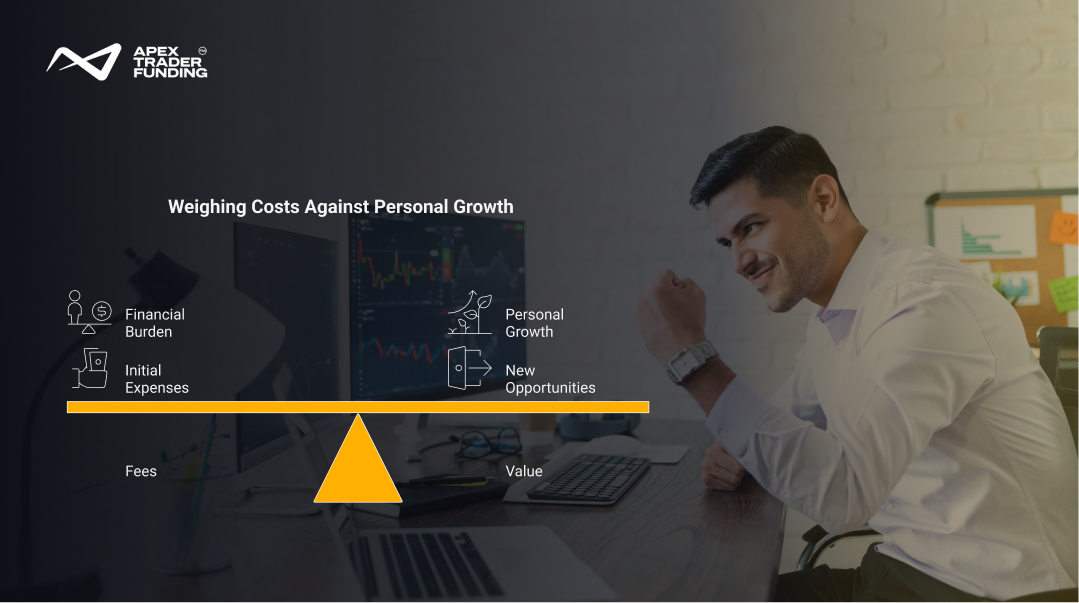
The true cost of trading isn’t the fee; it’s the effort you put into consistency.
Practical Example: Different Cost Tiers
Here’s a simplified view of how funded account costs often scale:
This table illustrates that traders can choose entry points based on both budget and readiness.
Final Thoughts: Cost as Part of the Lesson
So, how much does a funded trading account cost? The answer depends on account size, firm policies, and the resources included. For some, it’s as little as a modest monthly fee; for others aiming higher, it’s several hundred dollars.
The real lesson is that these costs serve a purpose, not a waste. It’s part of the learning journey, a way to commit to discipline while reducing the risk of trading personal savings. Treating it like an educational investment helps traders approach funded accounts with the right mindset—focused not just on money, but on growth.
Ready to Take the Next Step?
If you’re considering funded accounts, Apex Trader Funding offers structured options to match your goals. You can begin with a 25K Rithmic account for a lighter entry or move up to the 50K Rithmic account to trade with larger capital. Learn more at Apex Trader Funding.
FAQs
Most traders fail their first funded account attempt. The main reason isn’t a lack of skill but poor discipline—rushing to hit targets, breaking risk rules, or overtrading. Success comes to those who slow down, control position sizes, and treat the process as a professional test rather than a shortcut.
In funded accounts, any trading losses are covered by the firm, sparing the trader from direct financial liability. The real consequence is losing the account, not going into debt. Breaking rules or hitting loss limits leads to disqualification, proving that discipline is the only way to keep trading firm-backed capital.
In most funded programs, traders retain a large share of profits, usually ranging from 70% to 90%. The exact percentage depends on the firm’s payout model, but the structure is designed to reward consistent, disciplined performance while the firm retains a smaller share for providing capital.
Trading is not 100% profitable, and believing otherwise sets traders up for failure. Even the best professionals experience losses, but they stay profitable by controlling risk, sticking to tested strategies, and keeping losses smaller than their gains. The reality is simple: consistency and discipline, not perfection, create long-term profitability.
Related Blogs
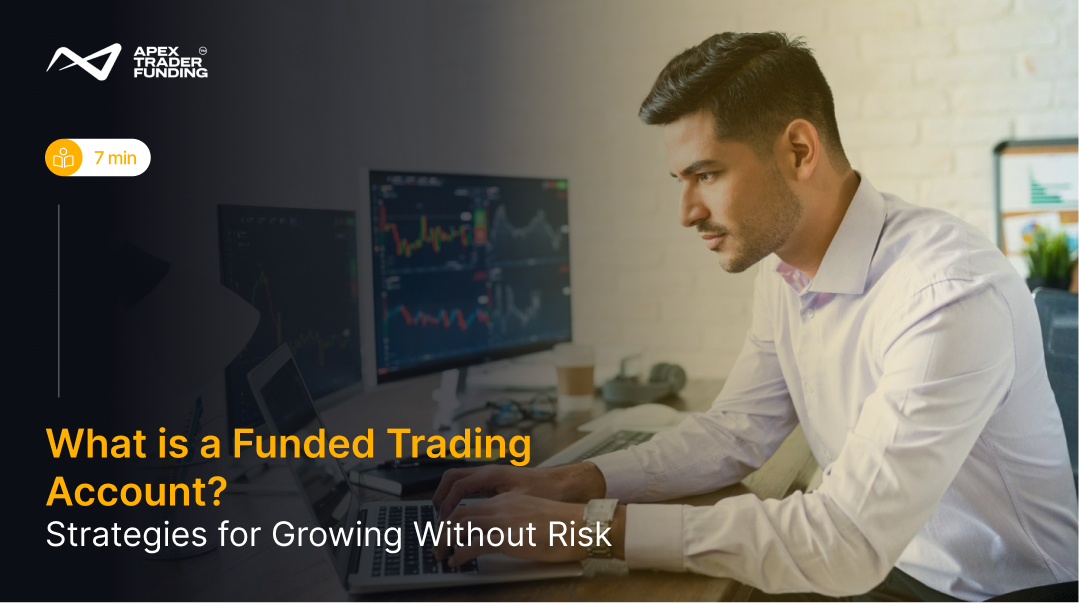
trading-education | 22-08-25
What is a Funded Trading Account? - Detailed Guide
A funded trading account is a financial arrangement where a proprietary trading firm (like Apex) provides you with virtual or...
Read more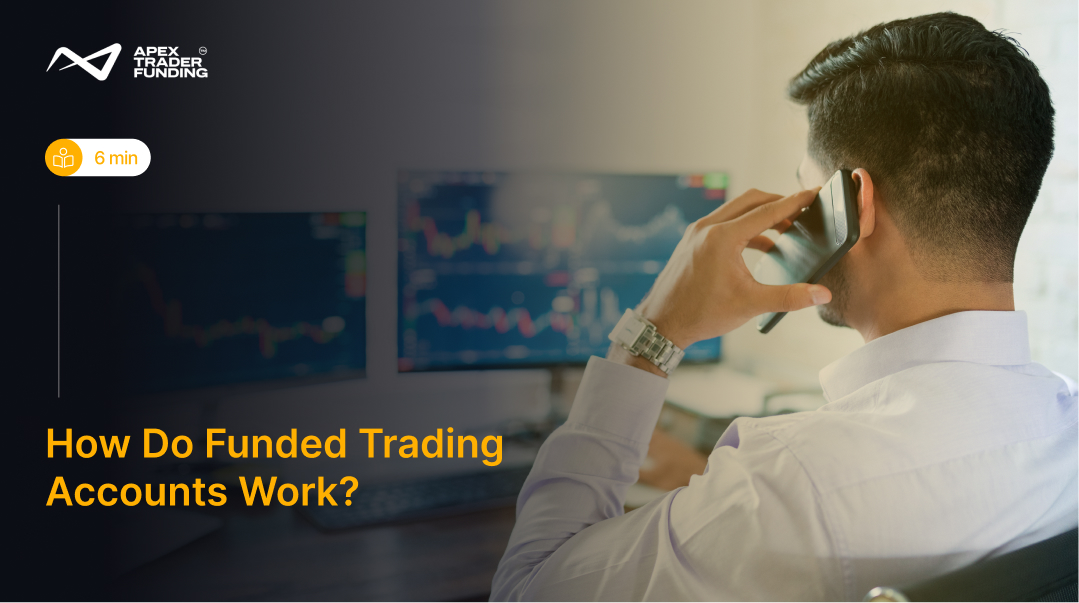
trading-education | 23-08-25
How Do Funded Trading Accounts Work?
A funded trading account works by granting a trader access to a firm's capital after they pass a simulated evaluation....
Read more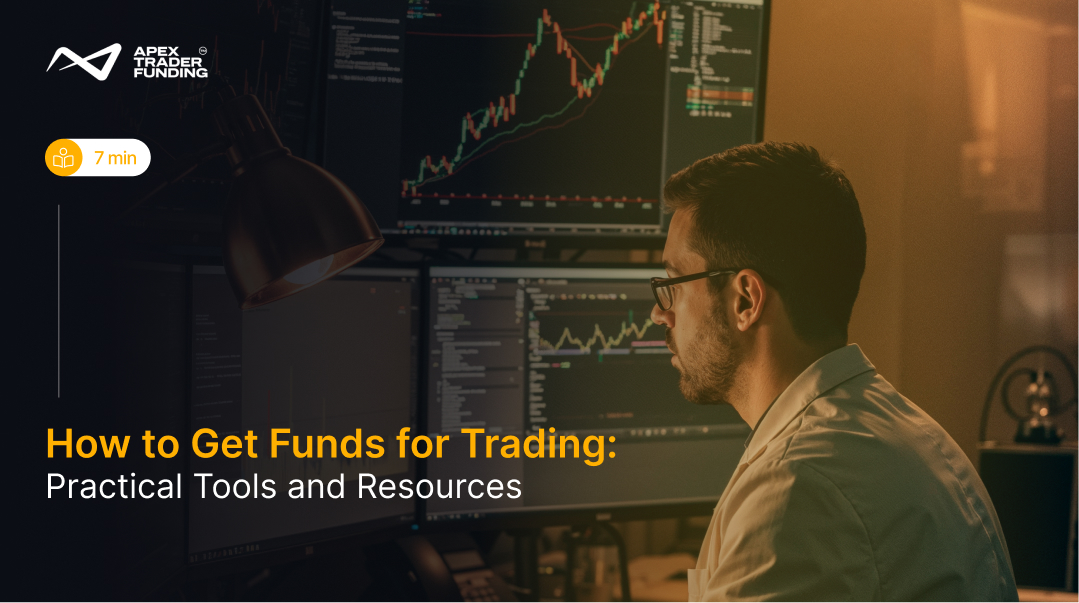
trading-education | 25-08-25
How to Get Funds for Trading? - 6 Practical Ways
Starting a trading journey often requires more than knowledge—it requires capital. Yet many aspiring traders face the same challenge: how...
Read more